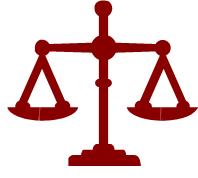Judicial misconduct trial
Broward Judge Dale Cohen admits in judicial misconduct trial he made mistake
 Broward Circuit Judge Dale Cohen conceded Tuesday at his trial on judicial misconduct charges that he made a mistake by calling his wife as a witness at an evidentiary hearing on a disqualification motion.
Broward Circuit Judge Dale Cohen conceded Tuesday at his trial on judicial misconduct charges that he made a mistake by calling his wife as a witness at an evidentiary hearing on a disqualification motion.
Cohen is facing trial before a state Judicial Qualifications Commission hearing panel and hopes to show his actions at the 2009 hearing did not rise to the level of misconduct that would subject him to punishment.
The judge was reacting to a recusal motion filed by Fort Lauderdale attorney Stephen Melnick. Cohen said he suspected the motion, one of several the attorney filed, was filed under false pretenses.
Melnick claimed the judge had a conflict of interest because the attorney was involved in litigation against Cohen's wife, Mardi Levey Cohen, when she ran unsuccessfully against Circuit Judge Pedro Dijols in 2008. Attorney William Scherer represented Dijols in a dispute over the name she wanted on the ballot, and Melnick, a Dijols supporter, conferred with Scherer before the lawsuit was filed.
Rather than approve the disqualification motion, Cohen scheduled the hearing and called his wife as a witness. The JQC charged the judge's goal was to intimidate and embarrass Melnick.
"It came as a surprise," Levey Cohen said when asked about being called as a witness.
F. Wallace Pope Jr., special counsel for the commission, asked Cohen whether he put Melnick in a position of having to attack the judge's wife. Cohen admitted he did. Pope, a partner with Johnson Pope Bokor Ruppel & Burns in Clearwater, noted Melnick objected.
The JQC maintains Cohen should never have held the hearing because the motion was legally sufficient on its face. And he should not have put himself in the position of calling witnesses, let alone calling his own wife.
Melnick testified, "I felt really uncomfortable trying to cross-examine a judge's wife in front of the judge."
Levey Cohen was asked for her opinion as an experienced lawyer about being called as a witness. She said: "It was a mistake. It was the wrong thing to do. Judges make mistakes.
That's why we have appellate hearings."
While Cohen recused himself after the hearing, he said he couldn't just ignore an opportunity to clear the air between Melnick and his wife.
"I can't pass on the truth," Cohen said. "I let the two parties speak, and I just granted the motion."
The judge also disputes the JQC assertion that Melnick's motion warranted disqualification without review. He noted Melnick was not the attorney of record for the client in the criminal case before Cohen.
Cohen held a hearing on another recusal motion filed by Melnick in a different case 22 days later and called the defendant to the stand. Melnick objected to questions intruding on attorney-client privilege.
Scherer, who followed the judge on the witness stand, testified Cohen acted as an observer during a recount of his wife's votes after the 2008 primary.
Asked by panelists whether that was unusual, Scherer said: "It's unusual for a sitting judge. It's highly unusual."
Scherer of Conrad & Scherer in Fort Lauderdale said an official election observer is an agent of the candidate and has the role of challenging any questionable ballots.
Cohen's wife, elected a county judge last November, testified later.
She said the only thing he did was accompany her to the election office to speak to someone about the process, and they left after 10 or 15 minutes.
"He just went to see what was happening," she said.
When asked if he was present as her representative, Levey Cohen said: "Never. I would never do that because I knew he couldn't be involved in my campaign."
The trial is expected to finish today. The panel is chaired by Henry Coxe of Bedell Dittmar Devault in Jacksonville.
(Published by Law.com - January 18, 2011)